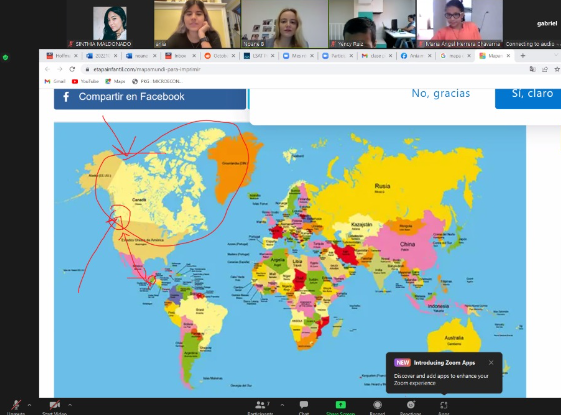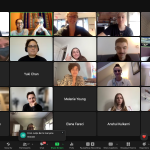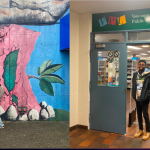UBC FHIS Spanish for Community – Fundación Ratón de Biblioteca
SPAN 301_2022_W1

Overview
22 Students from Span 301 sections 101 and 102, through Spanish for Community in partnership with Fundación Ratón de Biblioteca (Colombia), are facilitating English-Spanish virtual sessions with children from Medellín as part of the course’s Community Engaged Learning (CEL) component, facilitated by instructor Dr. María Adelaida Escobar Trujillo in collaboration with Nevir Escovar (Co-Facilitator in Medellín)
Partner
Fundación Ratón de Biblioteca.org, (Medellín, Colombia) community organization that facilitates and supports access to library services as well as reading and literacy programs to families, children, and youth living in challenging areas of Medellín aiming towards fostering community and civic engagement for a more creative and peaceful society.
Description, curriculum alignment and highlights
FHIS Spanish for Community
Course, sections: SPAN 301, sections 101 and 102
Number of students involved: 22
Type of project: Service Learning (CEL)
Modality: Co-curricular volunteer-based
SFC original design: María Carbonetti
SFC coordination: María Adelaida Escobar Trujillo
SFC community liaison:
FHIS Instructors: María Adelaida Escobar Trujillo
Partner Organization
Name: Ratón de Biblioteca
Coordinator: Sandra Zuluaga, Director
Co-teaching
Sandra Zuluaga, “From Colombia to the Virtual Community: A Conversation with Sandra Zuluaga Sánchez”
Project Objectives/Learning Outcomes
- Identify and apply cultural, and topic-specific vocabulary and grammar structures in appropriate contexts, through community-engaged learning (CEL) projects.
- Expand and develop cross-cultural awareness and understanding by studying, describing, and comparing critically diverse aspects of the Hispanic culture by participating in (optional) community-engaged learning projects.
- Make connections between course content and its application in community-specific contexts.
- Learn about the origin and history of the organization and its contribution to the peace process from its foundation until today, in the current social context of Medellín.
Highlights
- Partner organization leader gives a 1-hour Zoom presentation, explaining the history of the organization and the project they are developing around.
- UBC CCEL 1h tailored training on community-engaged learning.
- Students will receive certificates and a letter of acknowledgement from the partner organization for their contribution.
- Volunteer students are invited to reflect on the impact of this project in their lives and in their learning process.


Comments by amyla8